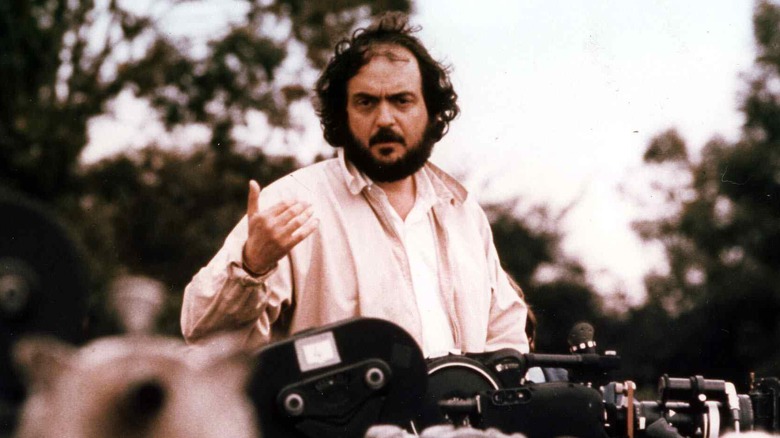Stanley Kubrick's Profound Piece Of Advice For Leon Vitali Proved Why He Was Such A Special Filmmaker
With just 13 feature-length pictures to his credit, Stanley Kubrick may not be the most prolific filmmaker of all time, but from "Spartacus" in 1960 through "Full Metal Jacket" in 1987, he hit nothing but grand slams. Part of what cemented his legacy was his unpredictability; his filmography not only reads like a syllabus for the best filmmaking course on earth but spans genres from science fiction ("2001: A Space Odyssey") to horror ("The Shining") to unclassifiable chaos ("A Clockwork Orange," "Dr. Strangelove").
One common thread throughout Kubrick's amazing run was his collaborator, English actor Leon Vitali, who died Saturday at 74 after nearly five decades in television and film. Vitali first appeared in Kubrick's "Barry Lyndon" and served as casting director for the director's last two films, "Full Metal Jacket" and "Eyes Wide Shut" (he also had a small part in the latter).
After approaching Kubrick on the set of "Barry Lyndon," Vitali set aside acting to work as his assistant on "The Shining." In one of the countless conversations the two had over their near quarter of a century working together, Kubrick passed on a gem of a lesson that summed up his entire unparalleled career and life in a few words.
Kubrick told Vitali that 'we've always done it that way' is a terrible reason to do anything
Vitali said Kubrick constantly sought out opportunities for growth. "One of the things that I always loved about him was the fact that he never thought that he knew it all," Vitali told Tin House. "There was always something more to learn. And depending upon what film or what we were working on, it was always a different way, a different approach, we'd do something different than what we'd done before." Vitali recalled exactly when and how Kubrick taught him that you can't break new ground without stirring up some dirt.
In a conversation about a never-realized project called "Captain January," he told Kubrick he had, as was his habit when casting, forwarded scripts to actors scheduled for auditions. Kubrick questioned why, and Vitali said, "I said, 'Because that's what we've always done.' And he said, 'Leon, consistency is the sign of a decaying brain.'"
That fear of mental atrophy gave us immortal and iconic lines like "I am Spartacus," "Here's Johnny," and "Gentlemen, you can't fight in here; this is the war room." Kubrick's epic collection of film work will live on forever, as will his memorable bit of advice to a friend.

